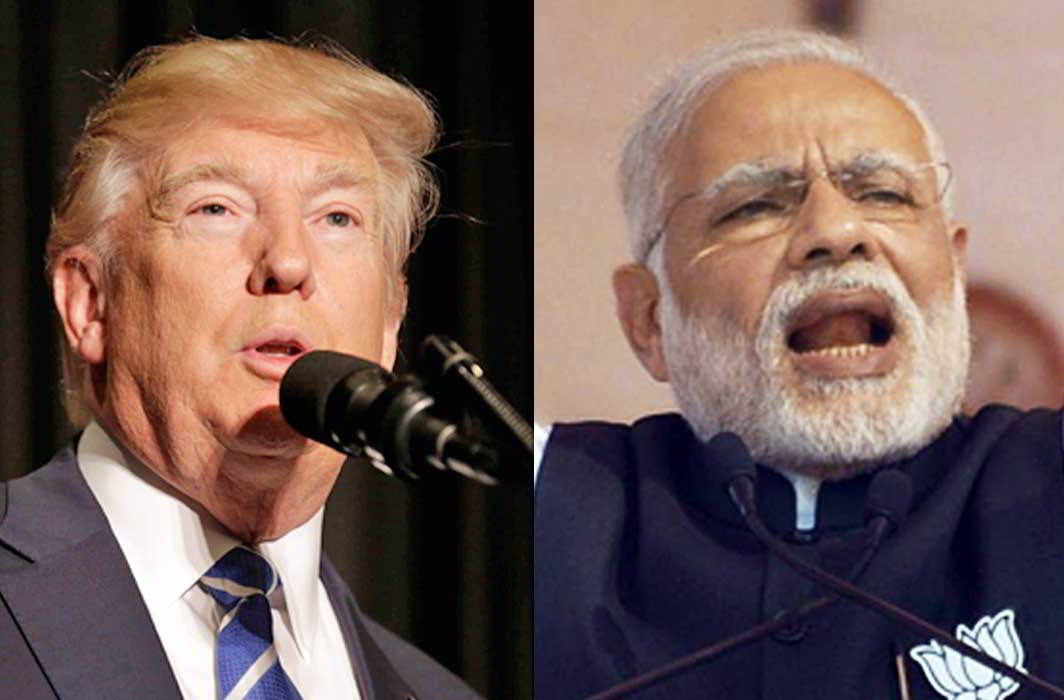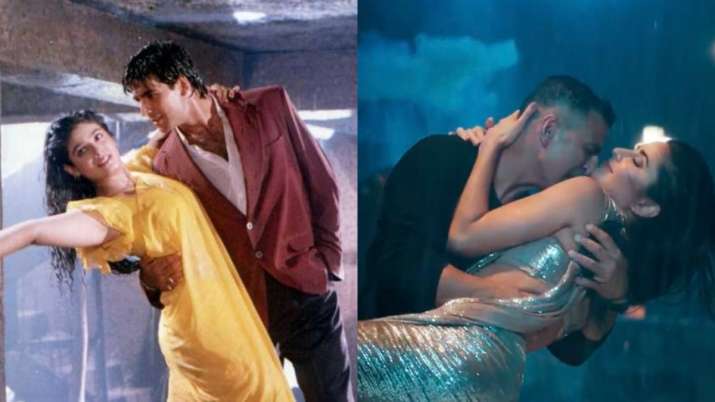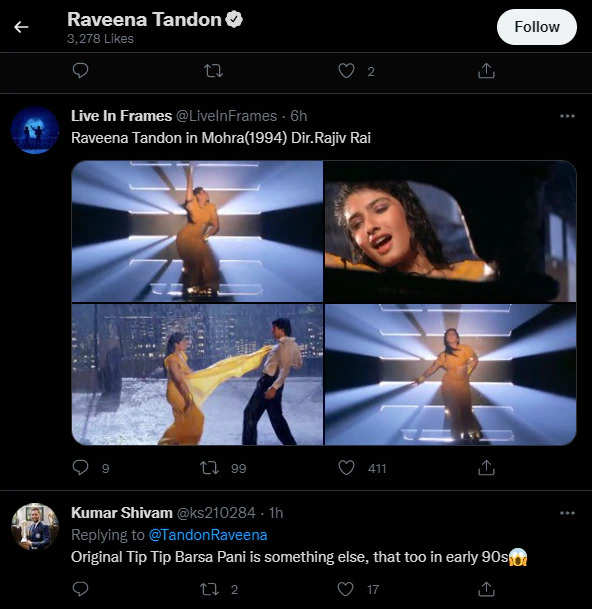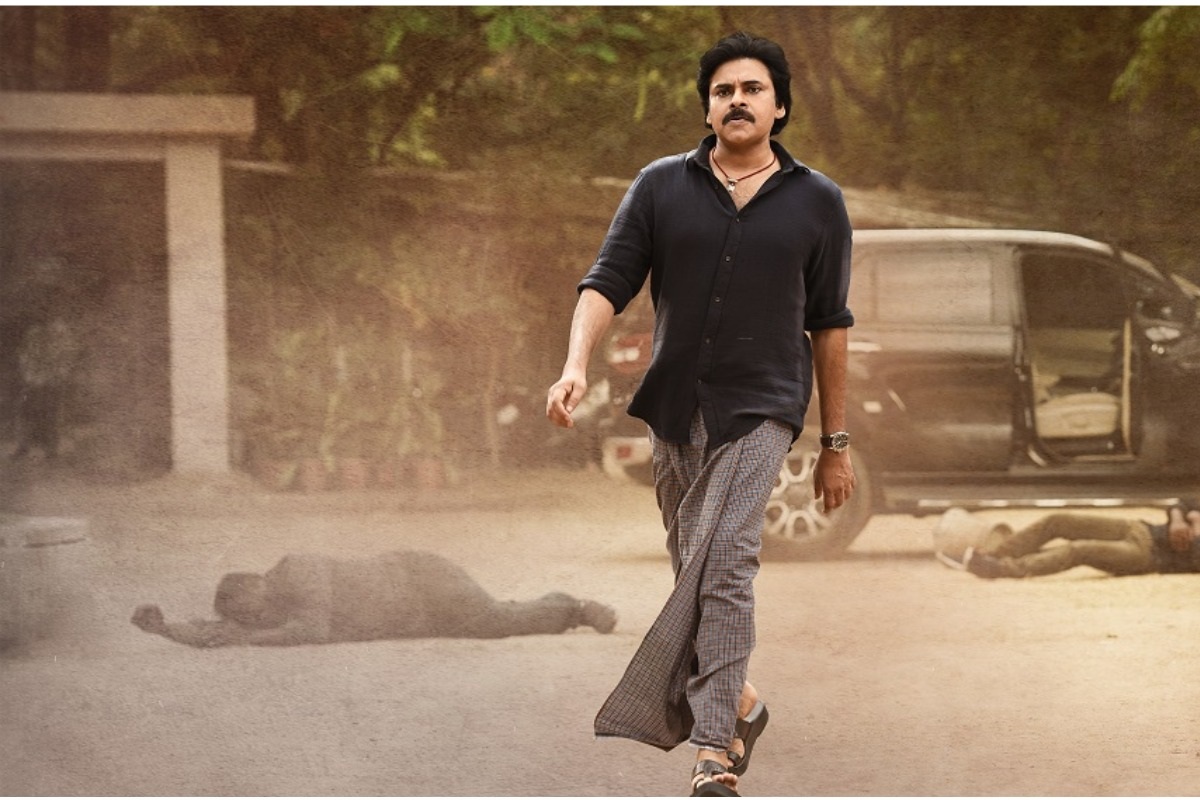[vc_row][vc_column][vc_column_text]With the US courts trumping his travel ban, The Donald is on the back foot and pondering a fresh executive order. However, even though, on the face of it, the American form of government seems fairer than the Indian one, there are several impediments to having presidential democracy in our country. An analysis
By Sujit Bhar
US President Donald Trump opened up to reporters travelling with him on ‘Air Force One’ on the weekend, saying that he might issue a fresh executive order on the travel ban, which will basically be a tweak of the one issued on January 27 that is now caught in a legal tangle with federal judges blocking it and with even a three-member appellate judges’ bench refusing to remove the legal blockade.
The initial order has been stuck on a technicality, specifically regarding the entry into the US, and certain states, of students already admitted to top universities. Trump has vowed to fight this blockade, and would want to go up to the Supreme Court if needed, but he is not sitting on his hands. He is busy drafting a new executive order on the travel ban.
That, surely, is bad news for America, as it is for the rest of the world. But what takeaway does India have from these developments, except worry about the state of Indian H1B workers and green card holders who have so far not taken up US citizenship? That surely is a huge worry, but one would assume that there is a lesson for India in how Trump has been going about and in how the courts have reacted.
It has been the talk for some time that India would be better off with a presidential form of government. By presidential form, one would generally assume it should be a copycat of the US system. Not so long ago, this was deemed as a better alternative than the representative democracy that we enjoy. It is essential, therefore, to observe the current situation in the US today.
[/vc_column_text][/vc_column][/vc_row][vc_row][vc_column][vc_column_text]
Technically, even the US courts would have found it hard to strike out against Trump’s travel ban. What they caught on to was a technicality—and that too in certain states, where students would be deprived of higher education… This student issue was the important handle that could technically dislodge the entire executive order (albeit temporarily) of Trump. The courts jumped at that
[/vc_column_text][/vc_column][/vc_row][vc_row][vc_column][vc_column_text]To begin with, we have to disregard the possibility of India having a direct form of democracy, such as exists in Switzerland. This is a possibility in smaller countries, with smaller, educated populations, and in a state where issues aren’t as large and complicated as in India. The very nature of the Indian populace is based on confrontation and the ability to get past the system, while cooperation is the keyword in a direct democracy.
Veteran BJP leader LK Advani had been quoted once as saying that the current system works fine and he had seen this is Gujarat with Narendra Modi. Unfortunately, this was before Modi grew into a national figure and prime minister and consigned Advani to the pages of history. One would, though, not disagree with Advani, because the concentration of power in an Indian prime minister’s hands is pretty thick.
One might have erroneously assumed that the US president had the option of becoming a democratic and constitutional dictator, and looking at Trump’s initial behaviour, one would have been troubled. But when the courts took up the fight and struck back, the US president’s real power came into doubt.
Technically, the US president can live from day to day on executive decisions alone, it seems, a fact that was eminently visible in the late stages of the Barack Obama administration and now in the Trump administration. That is where the limit of the US presidential system also comes through. The law-making process is a long and arduous one, instilled with proper checks and balances and rich in the feedback from different sections of society. An executive order needs just a garb of societal acceptability—such as the “national security” angle in Trump’s “Muslim Ban” executive order, for implementation.[/vc_column_text][/vc_column][/vc_row][vc_row][vc_column][vc_column_text]
We have to disregard the possibility of India having a direct form of democracy, such as exists in Switzerland. This is a possibility in smaller countries, with smaller, educated populations, and in a state where issues aren’t as large and complicated as in India. The very nature of the Indian populace is based on confrontation and the ability to get past the system, while cooperation is the key word in a direct democracy
[/vc_column_text][/vc_column][/vc_row][vc_row][vc_column][vc_column_text]However, well-entrenched institutions of democracy, specifically the judiciary and the media, remain the strongholds of a democracy that can counter the whims of a president intent on impressing upon society an idea that would eventually be harmful for society.
Place that against the Indian system. Modi’s latest executive order on demonetisation was not just a secretive one; it cut even his cabinet out of the loop. And one would have imagined they were his confidantes. Even the Reserve bank of India agreed to play second fiddle, while the courts refused to get into the issue proper, saying this was a policy decision, hence the prerogative of the government.
Technically, even the US courts would have found it hard to strike out against Trump’s travel ban. What they caught on to was a technicality—and that too in certain states, where students would be deprived of higher education.
One would have to keep in mind this method of finding the end of a loop to pull. While there is absolutely no connection in type or scope—and the caveat is that this correspondent in no way intends it—this does remind one of the way federal investigating agencies managed to arrest the dreaded mafia don Al Capone. Capone had received a subpoena for appearing before the court but he had replied, saying that he was down bronchopneumonia and could not attend. Investigators found that he was hale and hearty and certainly not ill. Capone was cited for contempt of court in Chicago and arrested in Florida.
This student issue was the important handle that could technically dislodge the entire executive order (albeit temporarily) of Trump. The courts jumped at that.[/vc_column_text][/vc_column][/vc_row][vc_row][vc_column][vc_column_text]
LK Advani had been quoted once as saying that the current system works fine and he had seen this is Gujarat with Narendra Modi. Unfortunately, this was before Modi… consigned Advani to the pages of history. One would, though, not disagree with Advani, because the concentration of power in an Indian Prime Minister’s hands is pretty thick
[/vc_column_text][/vc_column][/vc_row][vc_row][vc_column][vc_column_text]Hence Trump’s idea of a fresh executive order.
While one may say that comparing Trump’s travel ban with Modi’s demonetisation would be like comparing apples with oranges, there are inherent similarities one can work with. Both have disregarded the entrenched system, giving priority to their own half-baked ideas instead. The need for being so insular in implementation was obviously the fear that the system would not let it pass in the first instance. Hence there remained none of the statutory checks and balances within Trump’s ban and Modi’s demonetisation, resulting in the public having to pay a huge cost.
Technically, dictatorial tendencies by a ruler will always find a way to outmanoeuvre and outwit the system if he/she so desires. In the face of it, the US system seems fairer, and hence switching over to a US style presidential system would really not benefit Modi. He is comfortable where he is, and considering the fragmented nature of the opposition, he is in no serious problem.
But the other issue is about representation. In a country as diverse and with such a large population, much of it illiterate, a direct popular vote would be impossible to generate with conviction. A situation might also rise in which the most populous state of the country will keep getting its own presidential candidate.
Also, the primary system of selecting the candidate through the masses would be a horrendously difficult job. There, simply, would be no understanding of the nature of the electorate in different places, completely non-homogenous that the country is. Secondly, there would be problems in states such as Jammu & Kashmir, Nagaland and Manipur in finding a candidate who would be acceptable to all.
And in India, there is little chance any more of lifelong loyalty to a single party and being a registered member of it. That would be a nightmare.
The goodness of Indian democracy is in its fractured representative democracy, till such time education is all pervasive and common. Also, till such time probity in political office is an acceptable fact in public minds.
We are best, where we are, with our warts and all.[/vc_column_text][/vc_column][/vc_row]


 Latest world news23 hours ago
Latest world news23 hours ago
 India News23 hours ago
India News23 hours ago
 Latest world news23 hours ago
Latest world news23 hours ago
 Latest world news14 hours ago
Latest world news14 hours ago











